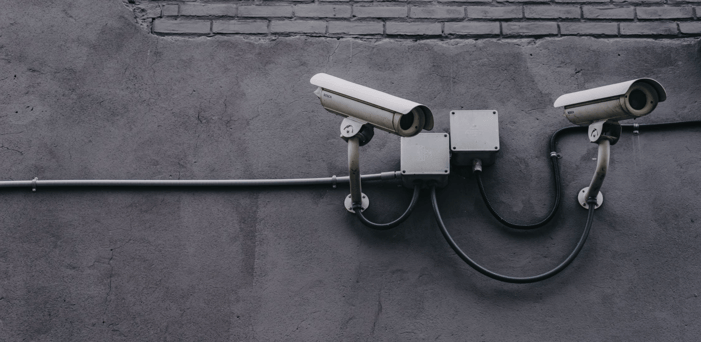The impact of the coronavirus on the world of work is ongoing and in at least one way, the ramifications are affecting the privacy of remote workers. What do I mean? Well, one of the hottest types of software to fly off the shelves these days is employee monitoring software. With more people telecommuting than ever before, companies want to make sure that their people are indeed working. Is that a good thing or a bad thing?

There are a lot of software to monitor employees out there, capable of keeping a careful watch on the work you are doing (or not doing it) when the boss isn’t around. They are produced by companies like Teramind, Digital Reasoning, Interguard, Time Doctor, VeriClock. InnerActiv, ActivTrack and Hubstaff; just to name a few. ActivTrak, Teramind and InnerActive have all reported a boom in sales recently. Here are a few quotes from The Guardian on how some of these technologies work.
To monitor productivity, software can measure proxies such as the number of emails being sent, websites visited, documents and apps opened and keystrokes. Over time it can build a picture of typical user behavior and then alert when someone deviates. “If it’s normal for you to send out 10 emails, type 5,000 keystrokes and be active on a computer for three hours a day, if all of a sudden you are only active for one hour or typing 1,000 keystrokes, there seems to be a dip in productivity,” said Miller.
“Or if you usually touch 10 documents a day and print two and suddenly you are touching 500 and printing 200 that may mean you’re stealing documents in preparation of leaving the company.” Other companies, such as Teramind, seek to measure distraction by looking at how much a person is switching between applications.
“If a paralegal is writing a document and every few seconds is switching to Hipchat, Outlook and Word then there’s an issue that can be resolved by addressing it with the employee,” said Teramind’s CEO, Isaac Kohen. A common but flawed technique is keyword detection, drawing from a list of predefined terms including swear words and slang associated with shady behavior. This approach tends to kick up a lot of false positives and is easy to circumvent by anyone intent on beating the system.
That wasn’t the case when an AllState Insurance franchise did a live demonstration of Interguard’s software to other dealers. The technology started scanning the network and almost immediately found an email with the words “client list” and “résumé”. The demonstrator opened the email in front of a room full of peers to discover his best employee was plotting to move to another company.
When I was reading up on these technologies, I stumbled across several arguments as to why companies needed them implemented and some of their arguments, I thought were valid. Some of these include employee monitoring software's pros and cons. For example, monitoring emails can guard against security breaches and theft of intellectual property. Monitored emails could be used in evidence in a lawsuit or to detect employee harassment and bullying; stuff like that. I think doing so is not only reasonable but expected in today’s workplace. To my knowledge, American companies generally aren’t required by law to disclose how they monitor employees using company-issued devices, although they tend to include a catch-all clause in employment contracts declaring such monitoring.

That being said, my concerns about employee monitoring tends towards companies who take matters too far. Check out this quote from The Star which reports on the trend of bosses panic-buying spy software to keep tabs on their remote workers.
Employers go too far if their monitoring software remains active outside work hours, according to Stacy Hawkins, a professor at Rutgers Law School.
Workers air their grievances on forums such as CodeAhoy, presumably using devices not being watched by their bosses.
"I’ve heard from multiple people whose employers have asked them to stay logged into a video call all day while they work,” said Alison Green, founder of the workplace-advice website Ask a Manager. "In some cases, they’re told it’s so they can all talk throughout the day if questions come up, but in others, there’s no pretense that it’s for anything other than monitoring people to ensure they’re working.”
Other managers take a more low-tech approach, insisting on constant status updates, Green said.
"How these managers are going to get anything done themselves in the midst of all these updates is another question,” she said.
Employers so worried about workers’ every moves might have a bigger issue to deal with, said Sutton of software maker Teramind.
"It’s not about spying on the user,” Sutton said. "If you hired them, you should trust them. If you don’t, they have no reason to be part of the organisation.”

I so agree with that last quote, “If you hired them, you should trust them.” But with so many companies new to telecommuting, it is a difficult change to adapt to. If that’s you, I may have a proven solution for you that has worked for several major organizations like IBM. Its called ROWE which stands for “Results Oriented Work Environment.” A Results Only Work Environment (ROWE) is a human resource management strategy co-created by Jody Thompson and Cali Ressler wherein employees are paid for results (output) rather than the number of hours worked. Their website offers resources and case studies on ROWE Certified organizations.
Here is a quote from their website.
ROWE Certified Organizations are proving that disrupting the status quo yields results – for business and people - here are some of the results:
CORPORATE RETAIL CLIENT
-
- 17% Increase in productivity
-
- 23% Improvement in service quality
-
- 13% Improvement in employee engagement
MANUFACTURING CLIENT
-
- Product delivery rate went from 70% to 90% and has remained consistent.
-
- Time to build went from an average of 50 hours to 35 hours, increasing customer satisfaction score
CORPORATE RETAIL CLIENT LOCAL GOVERNMENT AGENCY
-
- 9% increase in processing cases and 77% decrease in unprocessed in-basket items
RETAIL CONSULTING SERVICES
-
- 100% increase in top line growth in less than 5 years.
So, is a results oriented work environment the magic bullet for managing remote workers? Well, like everything else, there are pros and cons. Business.com had this to say about it:
Pros:
-
- ROWE workplaces require less physical space because fewer employees spend time in the office
-
- Employees use fewer sick days and take less time off, because they can better work around appointments, illnesses and other events
-
- Employees are healthier, happier, and have less work-related stress
-
- ROWE is environmentally friendly, saving both energy and commuting expenses
-
- ROWE increases employee satisfaction and decreases employee turnover, thereby reducing hiring and onboarding costs
-
- Companies that have been able to effectively implement ROWE report a major increase in productivity
Cons:
-
- ROWE workplaces can be difficult to manage, since it’s often harder to communicate with remote employees who work varying schedules.
-
- ROWE opens up the possibility for unethical behavior, since value is only measured in results – not how the results are reached
-
- Employees who find it hard to self-discipline or self-motivate may not succeed in ROWE workplaces
-
- ROWE doesn’t work for everyone. It’s impossible for consumer-facing fields like customer service or retail, and difficult for highly collaborative companies to implement
Okay, I want to make a couple of predictions in closing.
Over the course of my career, I have worked remotely for many years and I love it. I imagine that people new to the experience of telecommuting, who can adapt to its discipline, will find it hard to let go once the Coronavirus pandemic passes. So, expect the war for talent to heat up when things return to normal; hopefully the “normal” Amazon is expecting.
I also predict that some forward-thinking travel companies will create packages encouraging companies to send their workers on company retreats to encourage team building. Typically, these types of events are around the December holidays. However, should the remote work trend continue and more companies pivot to a results oriented work environment (giving people the flexibility that they craved before the Coronavirus), sponsoring team get togethers (on a more regular basis) will be the type of social glue that will keep workers happy and boost retention for companies.
But, those are just some of my thoughts. What are yours? Leave a comment below and thank you in advance.


